Hospitals introduce new time limits to help emergency departments
- Published
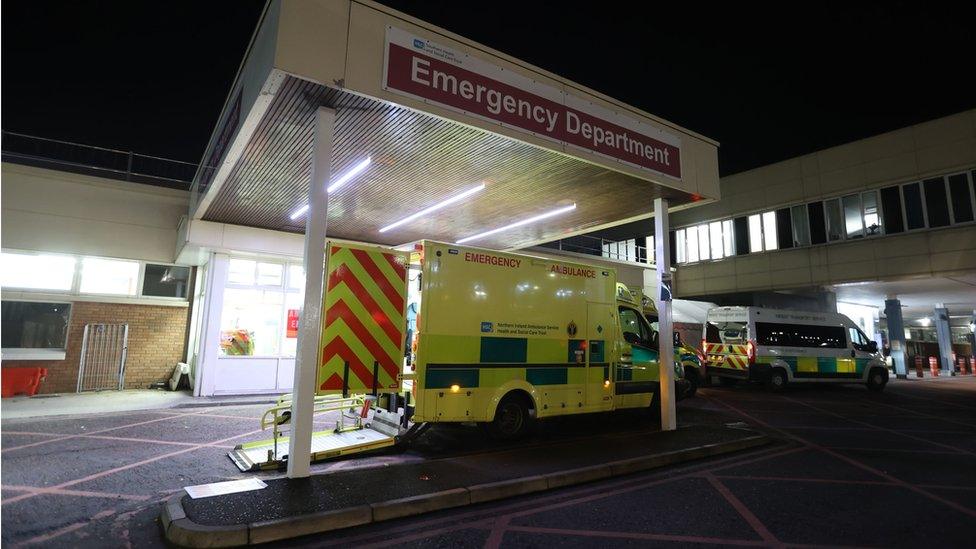
Health authorities are introducing new targets to free up hospital beds and ambulance crews
Northern Ireland's health trusts have agreed new target times for discharging patients and for ambulance handovers to ease pressure on emergency departments.
Patients medically fit for discharge will leave hospital within 48 hours if they have a suitable place to go to.
This could be an "alternative interim placement" while they wait for a space in their first choice of care home.
For ambulances, a three-hour limit to handover patients to EDs will apply to free staff for life-threatening calls.
Under the new plans if there is no available bed at the ED, ambulance crews will be asked to place their patients in corridors instead.
If hospital inpatients are medically fit and are waiting to be discharged, they may be asked to use chairs rather than beds "where appropriate," according to a joint statement from the trusts' chief executives.
Their families will be asked to take them home if they can, or agree to admit them to the first suitable care home if they cannot go home.
"These are not steps that we ever wanted or indeed imagined having to introduce," the statement said.
"They are not designed as a long-term solution, but as actions to reduce the risk to patients waiting in unacceptable circumstances in ambulances and emergency departments."
Record waiting figures
It follows weeks of intensive pressure on hospitals across Northern Ireland, which are struggling to admit new patients because most beds are already occupied.
On Monday morning, there was a record 380 people waiting to be admitted across Northern Ireland's EDs and 360 of those had been waiting more than 12 hours.
In one case, an elderly person was brought by ambulance to an ED at 08:20 GMT. The patient was still in the ambulance at 16:15 GMT.
At 16:00 GMT on Sunday, 13 ambulances were waiting outside the Ulster Hospital ED.
Often, hospitals are caring for patients who are well enough to leave, but who need additional support in order to live in the community.
Some of those patients stay in hospital because there is no-one to look after them on discharge or they cannot secure accommodation in their preferred care setting.
On Friday, 158 patients were fit to be discharged in the Belfast Health Trust, but because a majority of them turned down a temporary placement in a nursing home, they remained as inpatients.
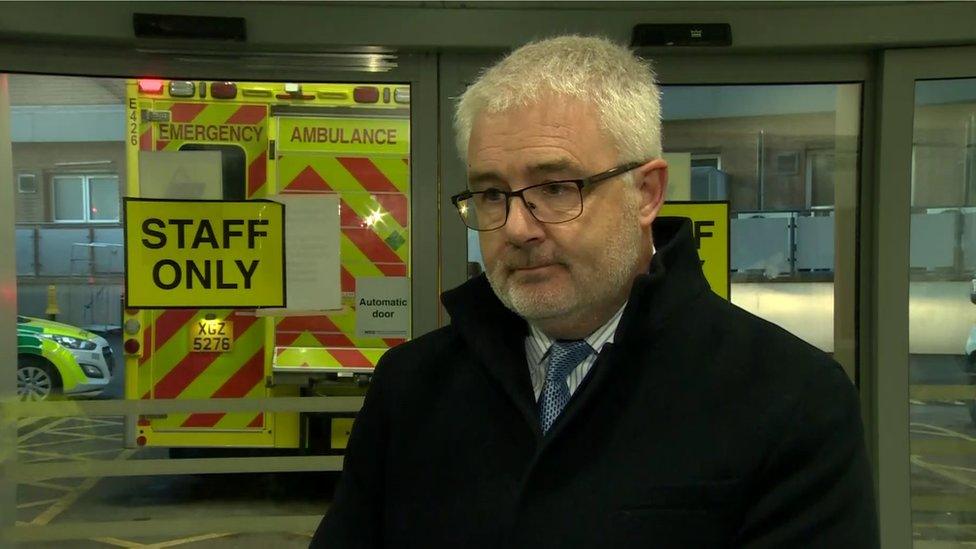
Michael Bloomfield from NIAS said beds and ambulances must be freed up for the sickest patients
The chief executive of the Northern Ireland Ambulance Service (NIAS) said the system was under probably the greatest pressure it had ever been.
Michael Bloomfield said health workers would be expecting patients and their family members to cooperate with staff to free up hospital beds for the patients who needed them most.
"We particularly need them to work with us around taking family members home, or discharging them into appropriate care homes when they become medically fit, when their care and their treatment in hospital is over," Mr Bloomfield said.
He added it was not in patients' best interests to remain in hospital longer than necessary and that staff would work "sensibly" with families to discharge patients into care facilities that would meet their needs.
The NIAS chief said the patients who currently faced the "greatest risk" were those who were ill and waiting on ambulances to arrive and those who were waiting "far too long" in the backs of ambulances for admission to EDs.


Too little, too late?
As the ED crisis has been in the headlines for months there will be some who will question the timing of this announcement, particularly just days before Christmas.
The so-called winter pressures began in the summer this year and have been building ever since.
Some of those who work in the system have said it is all too little, too late.
Discharging patients from hospital and placing them in nursing homes has not worked to date.
Using a firmer tone when asking families to cooperate is unlikely to work.
But health leaders have admitted these are not steps they ever imagined introducing and instead what is required is long-term funding and a system that is capable of meeting rising levels of demand.

The chief executives' joint statement said that they were deeply distressed at the ongoing situation in local hospitals.
They said they expected the current pressures to intensify after Christmas and into the early months of next year.
"Although strenuous efforts are being made to alleviate the pressures, we have a serious capacity deficit which means too many people are waiting too long for care," they said.
"Much of the impact of this is falling on frail and ill older people and on the staff caring for them."
They added that they "cannot passively accept the status quo, with all that it means for patient care and safety".
The RCN's Rita Devlin describes "mayhem" in the emergency department at the Royal Victoria Hospital last week
'Rising levels of demand'
In relation to the 48-hour patient discharge target, they said there would be no "cost to the patient or their family for this alternative interim placement and it will not impact on their place on any waiting list for their longer term option".
Trusts and care homes will work closely together to make best use of any and all available capacity.
"This will include new shared arrangements for pre-admission assessment for care homes seven days a week," the chief executives said.
Other departments in hospitals will be asked to make "maximum use" of available space in wards "to improve patient flow out of overcrowded emergency departments".
Related topics
- Published14 December 2022
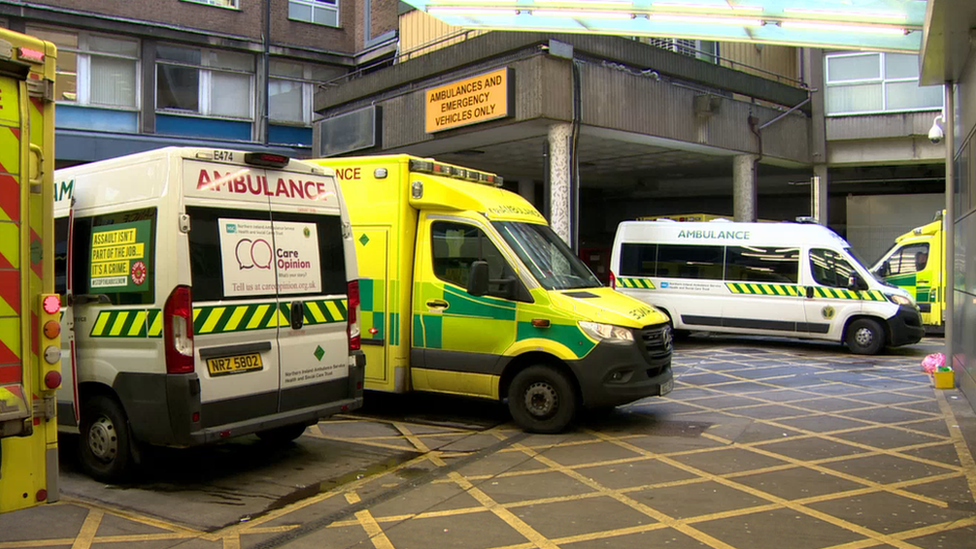
- Published8 December 2022
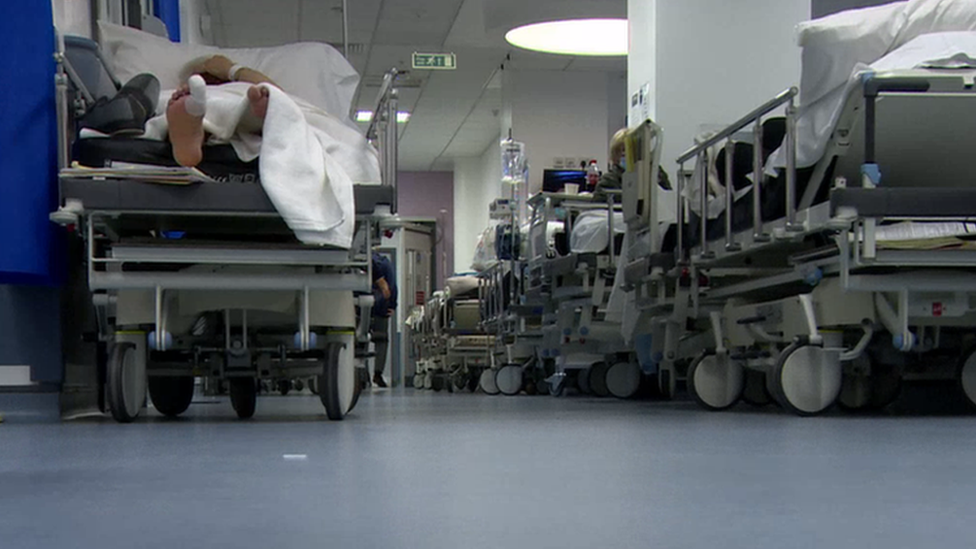
- Published24 November 2022
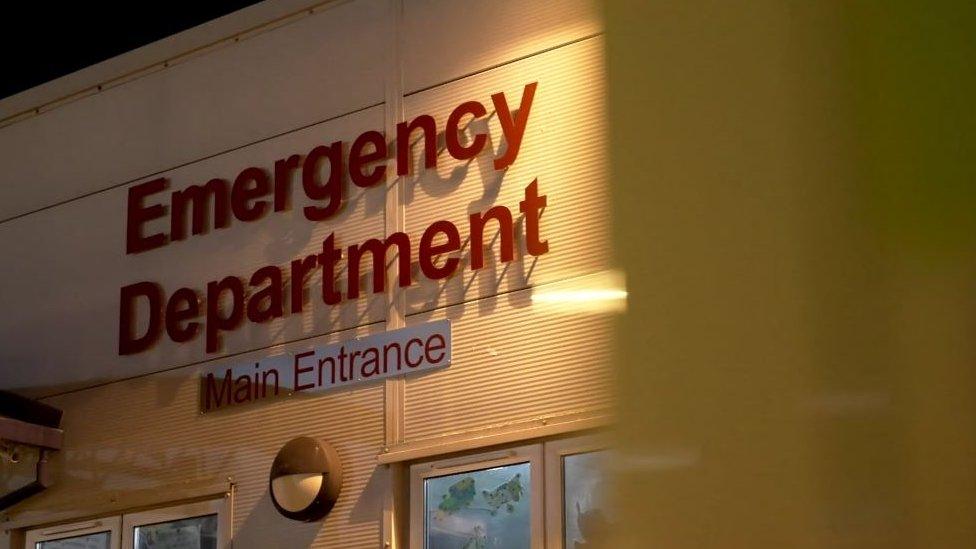
- Published19 December 2022
